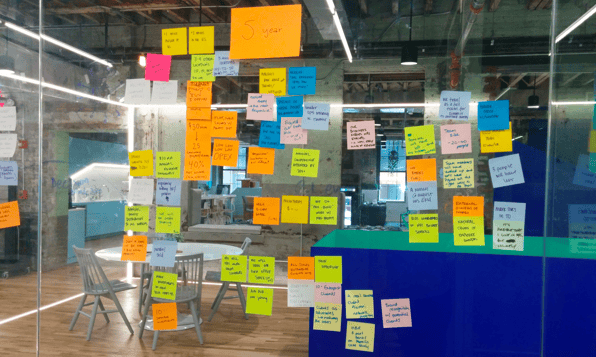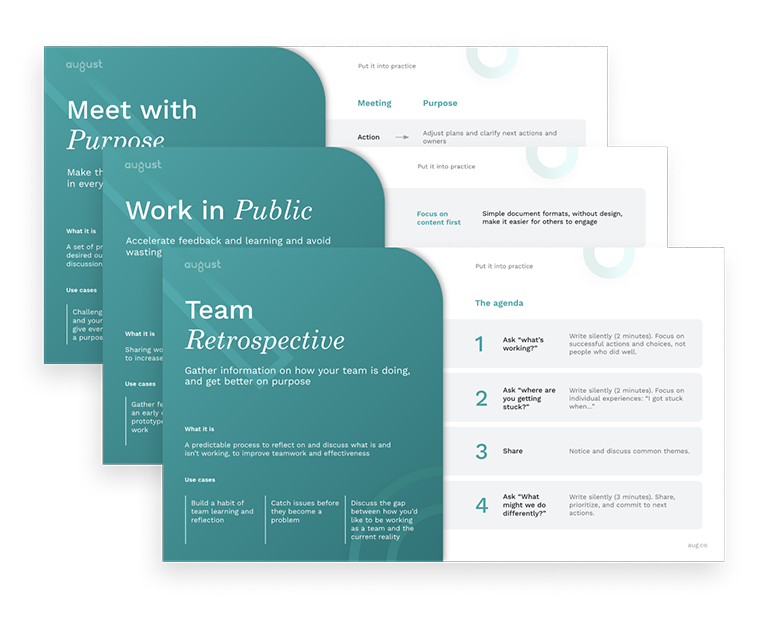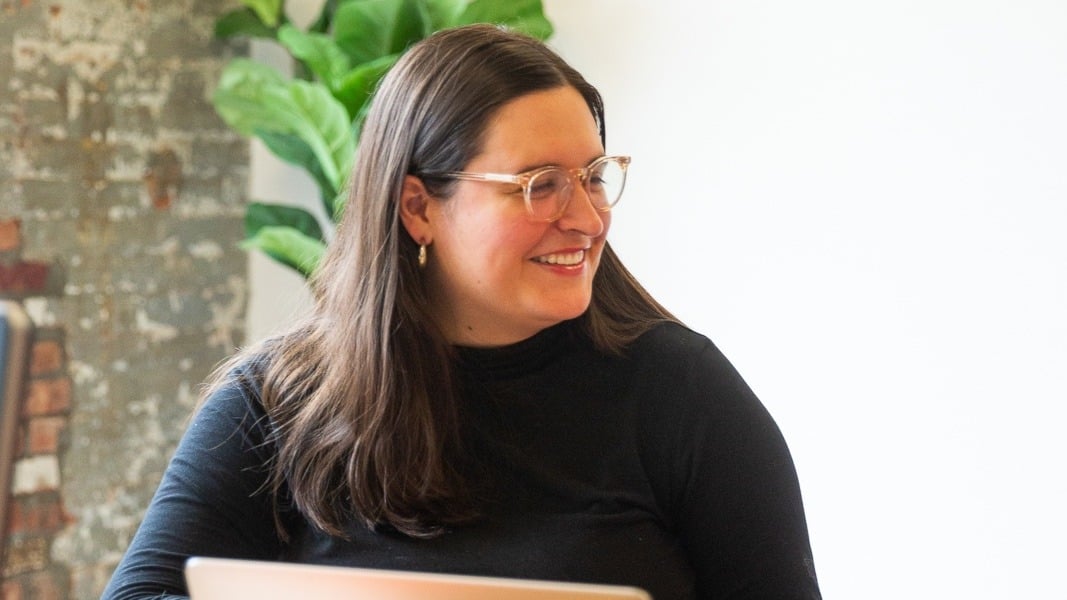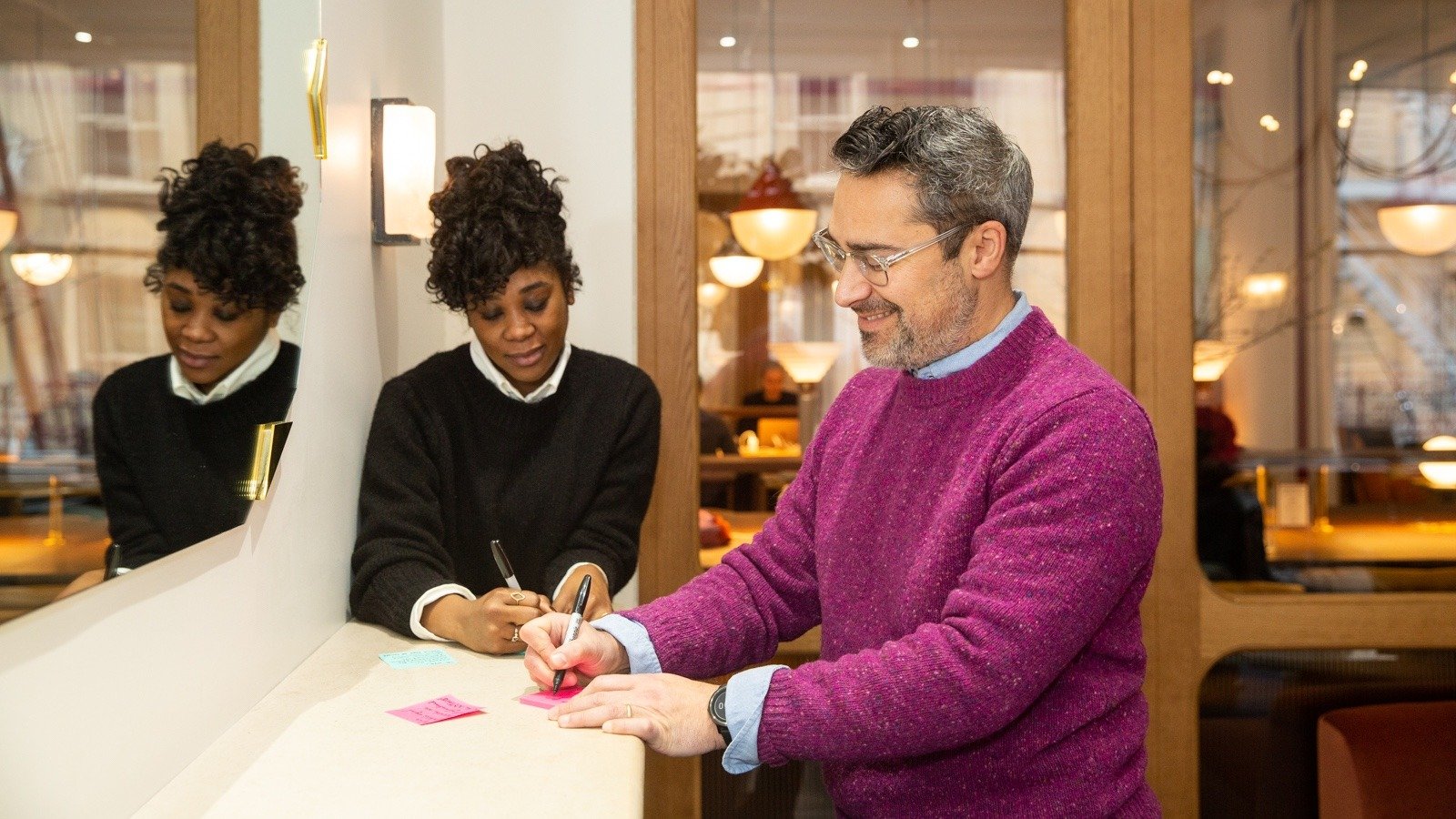Published August 17, 2022 | Updated August 14, 2024 | 4 minute read
My pals and I co-founded August seven years ago this month. I’m incredibly proud of this milestone, but I have to be honest: the business doesn’t look anything like what we expected when we founded it in 2015.
As we mark seven years, I want to celebrate our success, while acknowledging that our biggest wins have been built on the foundation of our failures.
Over the last seven years, we’ve done many, many things wrong. We’ve failed at every point on the failure spectrum, and we’ve paid for those lessons in lost time, dollars, and relationships.
For a quick blooper reel (just a few highlights):
- We’ve started and closed multiple international businesses.
- We’ve committed too quickly to distributing ownership, assuming people would want to stay forever, instead of building organic and flexible relationships to meet individuals where they are in their career.
- We’ve experimented with hiring, feedback, development, and conversations about equity as if we were in an org design science lab – at times causing real harm to real people.
The reason we’re still here is because we’ve been willing to acknowledge our mistakes, and change accordingly.
Back in 2015, we sat down together to articulate our core values. These values have been our constant guide through all the bumps and epic fails that followed. They continue to guide our decisions and commitments today.
One of those core values is learning. Another is public benefit. In the spirit of sharing what we’ve learned for the benefit of our fellow orgs, I want to share some of the biggest lessons we’ve learned the hard way, and how they’ve shaped our practices in ways we never could have expected.
1. Organizational complexity has few rewards.
We originally designed August to be one of the most complex businesses imaginable. We believed we could redesign everything about building a company – often going against expert advice and established best practices.
(Our accountants recently recounted over lunch that they used to privately chuckle at some of our wacky choices around ownership and corporate governance.)
We had to consciously learn to stop fighting complexity with complexity. We now take every opportunity to simplify our operations.
Simplicity allows us to focus on core problems rather than getting tangled in a web of secondary and tertiary factors.
This has become a guiding principle in our work with clients: Transformation is better served by simple, repeatable practices, even over sweeping change.
2. Empowered decision making is inclusive and agile.
People make better decisions when they listen to those most impacted by the outcome.
That’s not to say that a decision needs to be fully endorsed by every stakeholder. We’ve learned this the hard way. You don’t, for example, need every employee to join the weekly leadership team meeting to demonstrate that you value their perspective.
We’ve gotten stuck between inclusion and action, and gotten bogged down trying to find the “perfect” decision that serves everyone equally – which, surprise, ends up serving no one well.
We learned from these experiences, and created several decision-making practices to help find the balance between inclusion and forward momentum.
At the end of the day, the stakeholder needs to feel ownership over the change made – and trust and support in execution – in order for a decision to be embraced and implemented effectively.
3. Planning Is Useful; Plans Are Useless.
I recently found an August retrospective from our first year in business, in which we mapped out our 5-year ambitions. We had visions of a big office space supported by satellite offices all over the country, with 10-person teams co-located with clients nationwide.
The finish line of that 5-year plan, of course, landed smack in the middle of 2020.
The world changed under our feet. We had to course correct in a big way.
Two years later, we’re still working out of the same office we did in 2015, and only a few of us even live close enough to use it. The rest of our team is scattered across the world, supported by a constellation of project-based freelancers.
And while there is little about our current operation that resembles our original five-year plan, we are still working, growing and thriving! It hasn’t been easy, but we managed to adapt our plans, throw out what was no longer relevant, and pivot with the new reality.
Successful organizations adapt and respond to the changing world around them. Their plans should exist only to support and fulfill their purpose. The purpose doesn’t change, even though the plan to achieve it almost inevitably will.

Summary: Big failures can lead to bigger growth.
As we’ve learned from our mistakes and failures, our purpose has grown clearer and more relevant than ever: to build more capable teams that can thrive in today’s ever-changing world.
I hope that by sharing some of our foibles and face-plants over the last seven years, we can help your organization sidestep some of the same mistakes. Learning is uncomfortable, but there’s tremendous growth potential in sharing our hard lessons with each other.
Thank you for journeying with us!


.jpeg)






